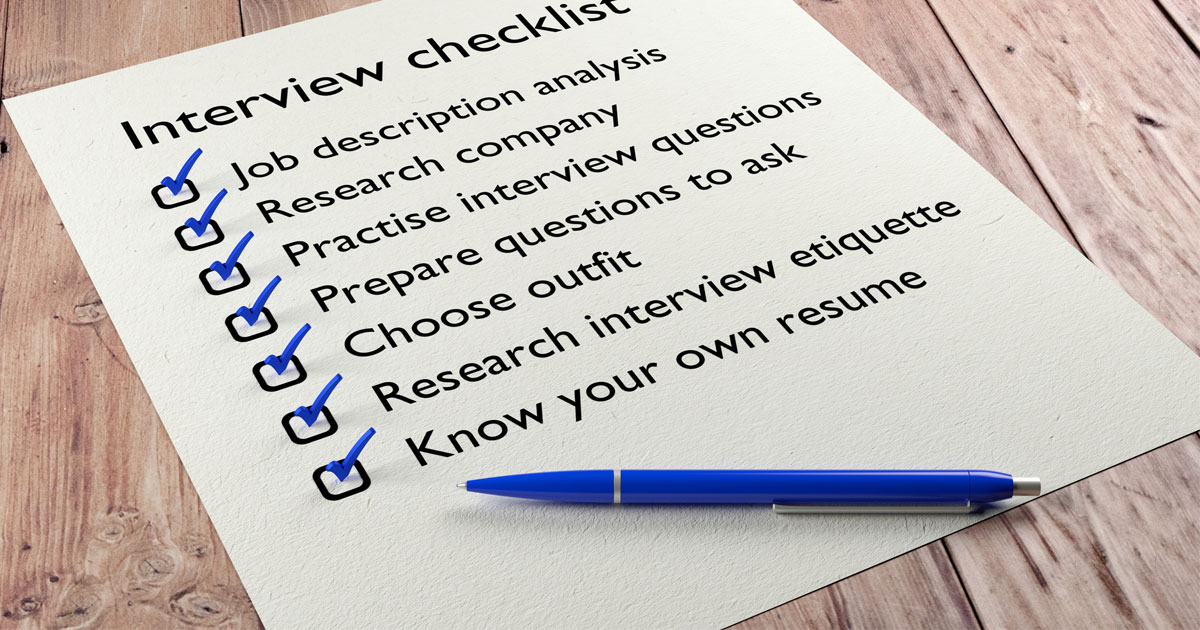Many people in recovery are concerned about getting a job after addiction rehab. So, what happens when you find recovery? Finding a job to replace the position you lost during active periods of substance use can be daunting, especially if you’re new to the recovery process. Fortunately, with the right training and support, finding employment is possible for anyone starting their recovery journey.
Job Searching After Addiction Recovery
When going through substance use disorder recovery, your primary focus should always be staying on your recovery journey. Unfortunately, job hunting is often stressful by nature, and the stress alone can be a trigger for those in recovery looking to get back into the workforce. Between finding a suitable job within your preferred field to preparing for an interview, the stress that often comes with these situations can feel all too familiar and cause unwanted cravings for substance use.
However, although the job hunting process can be hard, there are ways to continue your job search and maintain your recovery progress. In fact, most of the best SUD treatment programs offer assistance with things like resume building, interview skills, and job coaching. That’s because treatment professionals are well aware of the mental health and financial benefits of such preparation – and recovering individuals’ ability to achieve them.
The upside is that after finding a job, returning to and maintaining employment can be key to your recovery journey. Working can give you motivation and a daily routine. For example, getting into the habit of getting up for work and arriving at work can be a great tool for establishing healthy, enriching routines in your day that help distance you from thoughts of substance use. Similarly, the challenge of work may inspire you to learn relapse prevention strategies. So, despite the overall stress of job hunting, it’s important to keep in mind that the benefits of this process can help tremendously with your recovery journey.
Tips For Getting A Job After Addiction Rehab

People searching for jobs while in recovery may confront a variety of difficulties that can affect their ability to find work and pursue a career. For example, you might discover that you now lack references to aid in your job search if substance use disorder had an impact on how well you performed in previous positions. Similarly, a background check may reveal a criminal record that speaks to your difficulties with substance use, and you could experience unintentional bias from hiring managers.
Despite these challenges, you can still accomplish your long-term professional goals with proper planning and consistency. Getting a job in your chosen field requires finding an employer that meets your needs, both in recovery and professionally. Making an effort to create a job search plan will strengthen your application and increase your chances of getting an interview. Here are some of the most important planning steps to take before beginning a job search.
Reflect On Your Career Goals
Self-reflection is an important initial phase in the job-hunting procedure, and it helps you actualize your overall career goals. Just like planning your recovery timeline, planning your next career move begins with setting goals and determining milestones that will shape the journey ahead of you. If you’re like many people, this might include changing your career goals or the path you’ll take to get there. For many people, substance use and misuse can be compounded by dissatisfaction with their current life, including employment. So, although changing careers is rarely simple, it might be worthwhile if it results in a more supportive employment opportunity.
Consider Adding Skills
Even if you’re not changing career fields, it may be worthwhile to think about earning further certifications to strengthen your skills and abilities. This could come in the form of earning a professional trade certification or earning certifications for skills like American Sign Language (ASL) and CPR. You’ll be strengthening your earning power, reaching toward your goals, and demonstrating to potential employers your enthusiasm for your field of work, showing a dedication to the job that sets you apart from other applicants.
Search For Connections Within Your Field
When beginning the search for a new job while in recovery, it is important to have a strong support system of peers and coaches that can help you rekindle or find new connections in your field. Speaking with former colleagues or bosses can help open up the door to new employment opportunities, especially if you have kept in touch with these individuals during your recovery journey. Not only will they understand your situation, but they can also provide the support needed to help you get back into your previously chosen career field.
Maintain Your Support System
Consider asking a rehabilitation mentor or sponsor for advice as well, especially when dealing with the more stressful side of applying for a job. The support system you create during your recovery can go beyond any stay at a treatment facility, and its impact on your day-to-day life can be incredibly helpful for finding a job. These people are aware of your difficulties, have likely experienced similar situations, and can offer insightful advice to support your return to the workforce.
Expect Any Outcome
self-acceptance. Finding the right position that supports you and your recovery journey takes time. You may need to be patient if you want to achieve your long-term goals, which means accepting the occasional application denial or adjusting your short-term goals. If you are turned down following an interview, take the experience as a chance to learn and do better while preparing for your next one. There are a variety of reasons why hiring managers can decide to hire someone else instead of you, but their final decision is out of your control. These denials should not be taken personally.

Focus On Resume Building
Once you have decided on a career path, you must create an impressive resume to get interview requests while job hunting. Even if your employment history includes a gap from your recovery treatment, you can still impress the hiring manager by providing a compelling review of your professional achievements and stand-out skill sets. You should carefully personalize your resume for each employer as you begin the application process as well, highlighting skills that could be pertinent to that position in particular.
Consider the organization’s demands carefully and highlight areas of your experience in the industry that support its goals. For example, if you apply for a job in a trade and have years of experience completing similar work as a hobby, including this experience could set you apart from other applicants. Recovery from substance use disorder means finding ways to talk yourself up and feature your strengths, which are both critical for creating a strong, stand-out resume.
Use Online Employment Sites
After creating your new resume, create a profile on a reputable employment website. This profile will streamline applying for jobs and enable you to explore extra partnerships by joining virtual communities. Additionally, you can incorporate information into your profile that is not generally included on a resume, like personal hobbies or activities you enjoy. Any biography section on these sites is designed to feature what you believe distinguishes you from other applicants, especially during the networking stage of your job search.
Most of the larger employment websites incorporate user engagement into networking, meaning that more reactions or notes of congratulations on certain posts will increase your engagement and boost your visibility. For this reason, you might want to consider posting about recovery milestones. Transparency about your journey and willingness to discuss this part of your life can build your engagement and can also be a potential benefit to employers that value these characteristics in their employees.
Don’t Hide Resume Gaps
During the application process, potential employers are likely to notice if you have a sizable gap in your work history. Although you will probably need to address this gap in the interview, bringing attention to the gap on your resume by explaining will only lead to increased scrutiny. In most cases, it is preferable to highlight your positive qualities than to attract attention to a flaw.
By highlighting your professional successes, industry knowledge, and pertinent skill sets, you can avoid any conversations about your recovery journey that you are not ready to share. If the hiring manager views you as a possible candidate, you will have a chance to address the gap in your work experience later on in the interview process.
Job Interviews During Addiction Recovery

Moving from the application stage to the interview stage of the hiring process can be extremely gratifying. However, it can also be very stressful, especially if this is your first interview after beginning recovery. Knowing how to present yourself, your talents, and your benefits to prospective employers can help them build a sense of trust during the hiring process, which is solidified with a strong interview. Before going into a job interview, keep these tips in mind.
Learn About The Company
Although you should be prepared to discuss your path to recovery if you wish (employers can ask you about your current substance use, but not about a past addiction or participation in rehab), you should also be ready for other areas of the interview as well. Make sure to do extensive research on the firm before the interview, paying special attention to the goals and activities of the business.
This will show potential employers that you are knowledgeable about their business, which will also make it easier for you to answer questions about your desire to work there as well. Additionally, if the brand has a solid social media presence, examining the content they post and promote could be helpful when it comes to learning more about company values and beliefs.
Make Sure To Dress Professionally
It is important to dress appropriately for any interview you accept to demonstrate to prospective employers that you can fit in with their team. This could include business attire or business casual dress, depending on the company. Determine which is best for the company you are interviewing with by doing some research on dress codes within that field. For example, when interviewing for an office job or another position in the corporate sector, wearing a suit or dress with a blazer could be ideal. More casual establishments like a cafe could require business casual at most.
Highlight What You Can Bring To The Company
Your interview is your chance to persuade the company that you are the ideal applicant for the position. Do not forget to emphasize your best traits and skills. If you speak a language utilized in a country or region where the business commonly deals with clients, make sure to mention this during your interview. Similarly, if you hold a unique certification or degree that a potential employer could find appealing, you could list your expertise in this field as a skill.
During the interview, make sure to draw attention to these distinctive qualifications. If you have decided to reveal that you are in recovery, make sure to highlight your ability to overcome obstacles like substance use disorder to prove your ability to persevere through hardship. This will show your potential employer your commitment to your recovery journey. Hiring managers frequently want to understand whether candidates have the endurance to handle demanding situations, and highlighting your recovery may help solidify that determination.
Ask Questions
Your employer will be focused on getting to know you as a potential employee, understanding your skills and weaknesses, and learning what your contributions will do for the company. During these interviews, you should ask your employer questions about their business, such as typical work hours, what a day on the job looks like, or any remote work accommodations.
As much as you are getting interviewed for a position with the company, you should take this opportunity to question the hiring manager to see if their company would work well with your recovery plan. For example, if you feel that early morning or late night shifts could be a potential trigger for your substance use, asking an employer what shift they are hiring for could help sort out any positions that require work at those times.
Finding A Job After Addiction Rehab

Finding a job can be difficult for anyone, but it is exceedingly more challenging for those coming out of substance use treatment. That’s why it’s so important to find resources that will support you as you move toward financial stability while addressing your emotional and physical health.
Addiction Freedom Now is a community of people impacted by addiction and recovery, including professionals, individuals in recovery, family members and friends. Together, we work to create and share the resources you need to move forward in your recovery plan.
Stay strong!
Jim
Read next: Life After Rehab




